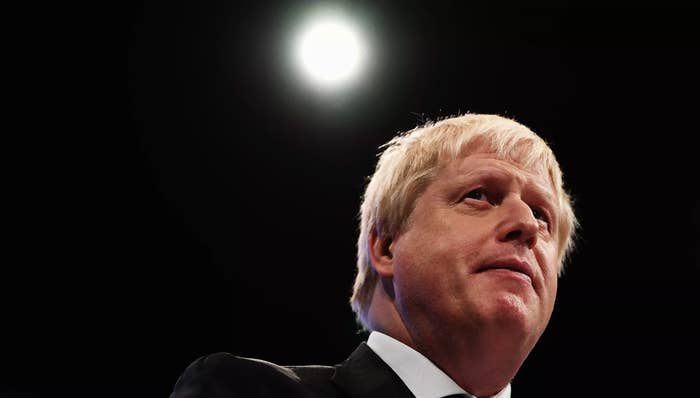
UPDATE (March 12): The independent Commission on Race and Ethnic Disparities has now published its long-awaited 264-page report. As it turns out, fears that scrapping ‘BAME’ would be a central element of the report’s recommendations—widely condemned as a superficial and inconsequential solution—turned out to be justified.
Even more controversially, the 10-member commission—which investigated ethnic and race disparities in education, employment, the criminal justice system and health—claimed to have found “no evidence” of structural racism in the UK and that the country “should be regarded as a model for other white-majority countries”.
However, despite that, the report made 24 separate recommendations (including removing the acronym ‘BAME’ as an official term). These included:
- The phasing in of extended school days in disadvantaged areas to help pupils catch up on learning disrupted by the pandemic
- Improving access to better quality careers advice for children from disadvantaged backgrounds
- Further research into reasons why pupils in certain communities perform better than others
- For organisations “to move away from funding unconscious bias training” in favour of “evidence-based approaches of what does work to advance fairness in the workplace”
Ahead of the report’s publication, commission chair Tony Sewell told BBC Radio 4 that “no-one denies and no-one is saying racism doesn’t exist.” He adds that they “found anecdotal evidence of this. However, evidence of actual institutional racism? No, that wasn’t there, we didn’t find that.”
Prof Kehinde Andrews, a professor of Black Studies at Birmingham City University, said: “It’s complete nonsense. It goes in the face of all the actual existing evidence. This is not a genuine effort to understand racism in Britain. This is a PR move to pretend the problem doesn’t exist.”
Dr Halima Begum, chief executive of the Runnymede Trust, a race equality think tank, rejected Sewell’s assertion that institutional racism doesn’t exist, saying: “Tell that to the Black young mother who is four times more likely to die in childbirth than her young white neighbour, tell that to the 60% of NHS doctors and nurses who died from Covid and were Black and ethnic minority workers.
“You can’t tell them that, because they are dead.
“Institutionally, we are still racist, and for a government-appointed commission to look into (institutional) racism, to deny its existence is deeply, deeply worrying.”
She added: “We feel that if the best this government can do is come up with a style guide on BAME terminology, or what we should do about unconscious bias training, or extend a few school hours, then I’m afraid this government doesn’t carry the confidence of Black and ethnic minority communities any longer, certainly not on race.”
Original story below.
The term ‘BAME’ (Black, Asian and Minority Ethnic) is currently under the spotlight after it was claimed that the use of this term would be one of the central parts of an upcoming report from the Commission on Race and Ethnic Disparities.
Athough it’s proven to be a highly controversial term that many are glad to see the back of, some campaigners have questioned the commission’s decision to put so much focus on this one issue. Many feel that the subject is of relatively little importance and that it distracts from much larger problems on a systemic level.
Downing Street has yet to comment, however a spokesperson for Boris Johnson did suggest the government would be backing away from the term. “The government doesn’t routinely use the terms ‘BAME’, or ‘BME’, because they are not well understood in user research, and because they include some groups and not others,” he said.
Halima Begum, the chief executive of the Runnymede Trust charity, expressed concern that it would do little to address structural issues. “If advice on the use of the term BAME is the extent of the commission’s findings, or the most pressing of its recommendations, then Britain’s ethnic minority communities are being insulted by this report and its authors,” she said.
“Regardless of the fact that many UK government departments including Defra [the Department for Environment, Food and Rural Affairs] and the Foreign Office have been advising for years against use of the term BAME, we live in a country where Black women are four times more likely to die in childbirth than their white friends, and young Black men are 19 times more likely to be stopped and searched by the Metropolitan police than their young white neighbours. These are the sorts of issues the commission should be examining at an institutional and structural level if it is to have any credibility at all.”
Maurice Mcleod, the chief executive of Race on the Agenda (Rota), said: “Many activists working to end racism in Britain have long argued that use of BAME is problematic and so Rota is pleased to hear that the term will not be used by public bodies in future. The term came about as a way of describing everyone who is not white but this kind of generalisation leads to a lack of specificity. By zooming out and looking at all minority ethnic communities together, the experiences of particular groups, such as African-Caribbeans or the Gypsy, Roma, Traveller communities, get lost.”
Another element campaigners are concerned about is that the commission was overseen and set up by the head of Johnson’s policy unit, Munira Mirza, who has a track record of questioning whether structural racism even exists. Not only that, but she chose Tony Sewell to chair the commission and he also questioned institutional racism as a concept.
After delays pushed back its original December publishing date, the report is said to be due this week.

